Jellett was born on 29 April 1897 at 36 Fitzwilliam Square, Dublin, the daughter of William Morgan Jellett, a barrister and later MP, and Janet McKenzie Stokes. Her aunt was a pioneering woman doctor working in India, Eva Jellett.
Jellett's art education began at a young age, when she received painting lessons from Elizabeth Yeats, Sarah Celia Harrison and from Miss Manning who had a studio on Merrion Row, and whose influence on Irish Artists of the time was considerable.
She later studied at the Metropolitan School of Art in Dublin (her teachers included William Orpen, and his influence is apparent in her work from this period ) . Despite her artistic talent, she was still undecided about her future, and at this time was taking regular piano lessons with a view to becoming a concert Pianist.
Her decision to become a painter was made after working under Walter Sickert at the Westminster Technical Institute in London, where she enrolled in 1917 and remained until 1919. She showed precocious talent as an artist in the impressionist style. In 1920, she won the Taylor Art Scholarship worth £50. The same year she submitted work to the annual exhibition of the Royal Hibernian Academy.
In 1921, along with her companion Evie Hone moved to Paris, where, working under André Lhote and Albert Gleizes she encountered cubism and began an exploration of non-representational art. After 1921 she and Evie Hone returned to Dublin but for the next decade they continued to spend part of each year in Paris.
In a 1943 essay entitled 'Definition of my Art' Jellett describes her art has having three revolutions inspired by her teachers; the first credited to Walter Sickert, the second to André Lhote and the third to Albert Gleizes.
In 1923, she exhibited two cubist paintings at the Dublin Painters' Exhibition. The response was hostile, with the Irish Times publishing a photograph of one of the paintings and quoting their art critic as saying of them 'to me they presented an insoluble puzzle'. The following year, she and Evie Hone had their first joint exhibition.
A deeply committed Christian, her paintings, though strictly non-representational, often have religious titles and often resemble icons in tone and palate. In Irish Art, a Concise History Bruce Arnold writes that Jellett was an important figure in Irish art history, both as an early proponent of abstract art and as a champion of the modern movement. Her painting was often attacked critically but she proved eloquent in defense of her ideas. Along with Evie Hone, Louis le Brocquy, Jack Hanlon and Norah McGuinness, Jellett co-founded the Irish Exhibition of Living Art in 1943. Jellett died on 16 February 1944, aged 46, of pancreatic cancer.
This is part 1 of 4 parts on the works of Mainie Jellett:
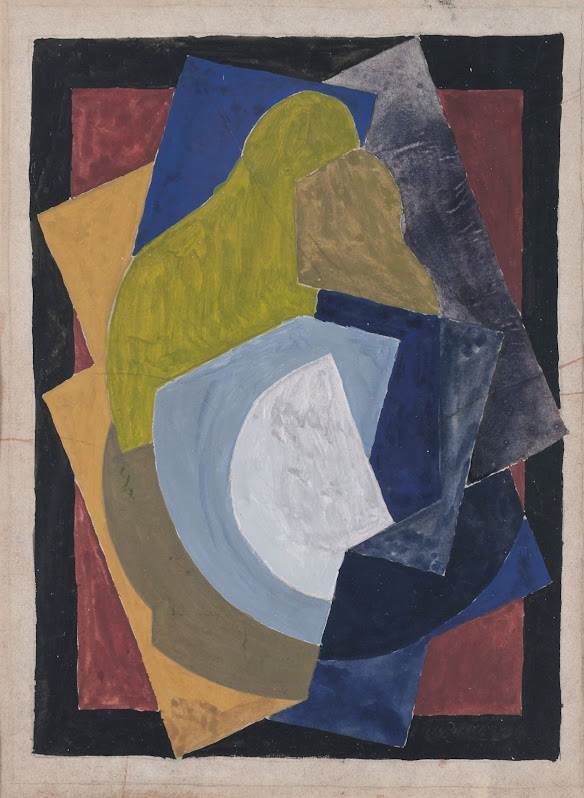
1912 Abstract No.4
gouache 21 x 15 cm
IMMA
(Irish Museum of Modern Art)
1912 Abstract No.5
gouache 21 x 15 cm
MMA Collection: Donation 2010, Bank of Ireland Art Collection, 2010
1914-16 Seated Nude
oil on canvas 91.3 x 61.2 cm
Ulster Museum, Belfast
1914-16 Still Life
oil on canvas 33.7 x 33.9 cm
Ulster Museum, Belfast
c1914 Nudes Dancing round a Fountain by Moonlight
oil on canvas 88 x 63 cm
National Gallery of Ireland1915-18 Study of a Lady Wearing a Hat
watercolour on paper 19 x 15.5 cm1918 Art School
ink on paper 24 x 18 cm1918 Babbin and Betty, Fitzwilliam Square
watercolour on paper 25 x 22 cm
1918 Child and Cart, August 1918
watercolour 14 x 23 cm1918 Portrait of a Woman
pencil on paper 18 x 19 cmc1918 Worcestershire Landscape
oil on board 25.4 x 20.3 cm
1919 Betty on the Rocks
oil on canvas 50.8 x 40.6 cmc1919 Crows amongst the Barley Stooks
watercolour on paper 37 x 26 cm
1920 Female Nude
pencil on paper 18 x 28 cm
1920 Geraldine Fitzgerald
oil on canvas 89 x 71 cm
1920s Abstract Compostion
pencil and gouache 25 x 18 cm
1920s Design for a Rug
gouache 36 x 25 cm
1920s Three Elements
oil on canvas 91.5 x 71 cm
1921-22 Seated Female Nude
oil on canvas 56.3 x 46.2 cm
Ulster Museum, Belfast
c1921 Nude in Landscape
oil on canvas 51 x 66 cm
1922 Abstract Composition
gouache 20 x 20 cm
IMMA Collection: Donation 2010, Bank of Ireland Art Collection, 2010
1922 Abstract
oil on canvas 91.9 x 72 cm
Ulster Museum, Belfast
1922 Girl in Blue
oil on canvas
1922 Plants and Rocks
pencil, watercolour and bodycolour 26 x 24.2 cm
c1922-24 Abstract Study (Single Element Composition)
gouache over pencil on paper 12 x 23 cmc1922 Abstract Composition
gouache 25.5 x 9.5 cmc1922 Abstract Composition
gouache on paper 20 x 14 cmc1922 Abstract Composition
gouache on paper 21 x 10.5 cmc1922 Abstract Composition
gouache on thin card 24.2 x 8.9 cmc1922 Composition
oil on canvas 64.5 x 49.5 cmc1922 Oval Composition
gouache on thin card 22.8 x 10.8 cmc1922 Oval Composition
gouache on thin card 23.5 x 17.3 cm
1923 Decoration
tempera on wood panel 89 x 53 cm
National Gallery of Ireland, Dublin
1924 Abstract
gouache on paper 18 x 27 cm
1924 Composition
gouache 17.1 x 24.7 cm
1924 Two Elements
oil on canvas 85 x 66 cm
c1924 Three Elements
gouache on card 21.5 x 27.5 cm
 |
| 1924 Four Elements oil on canvas |
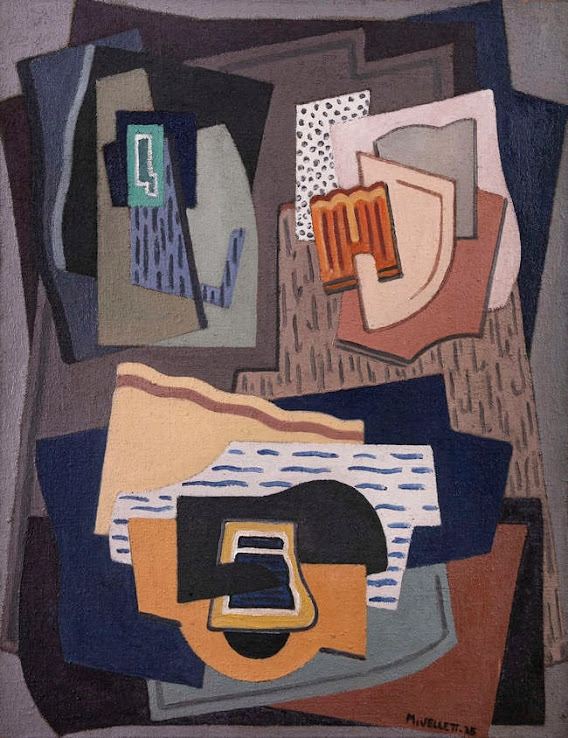 |
| 1925 Abstract Composition with Three Elements oil on canvas 93.3 x 73 cm |
 |
| 1925 Abstract Compostion watercolour and gouache over pencil 17 x 24 cm |
 |
| 1925 Composition oil on canvas 51 x 66 cm |
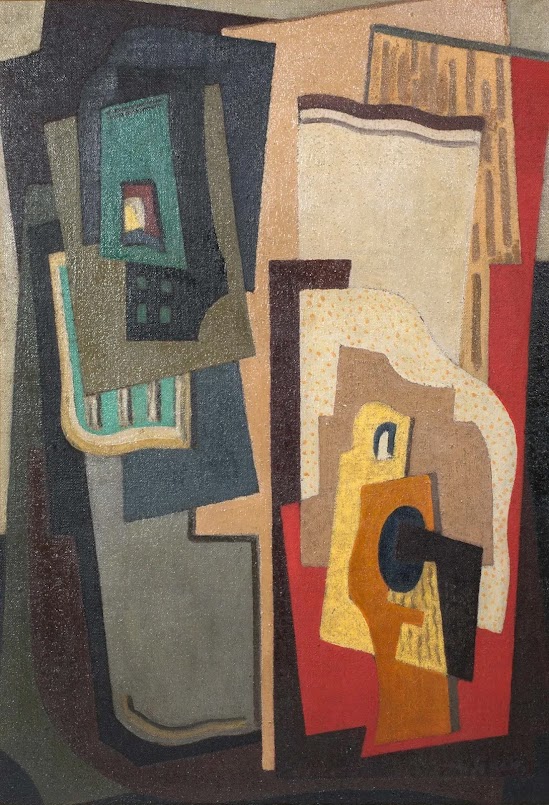 |
| 1925 Composition, Two Elements oil on canvas 91.5 x 61 cm |
 |
| 1925 Four Element Composition gouache on paper 28 x 21.5 cm IMMA Permanent Collection |
 |
| 1925 Madonna and Child gouache and pencil on paper 25.5 x 11 cm |
 |
| 1925 Three Elements pencil on paper 20.3 x 26 cm |
 |
| 1926 Abstract Composition oil on canvas 183.5 x 92 cm |
 |
| c1926 Sea Rhythm oil on canvas 44 x 144 cm National Gallery of Ireland |
 |
| c1926 Study for Sea Rhythm pen and ink on transparent paper 21 x 27 cm |
 |
| 1927 Green Abstract oil on canvas 84 x 67.2 cm |
 |
| 1928 Abstract Crucifixion (details not found) |
 |
| 1928 Abstract Crucifixion (study) pencil on paper squared for transfer 48 x 41 cm |










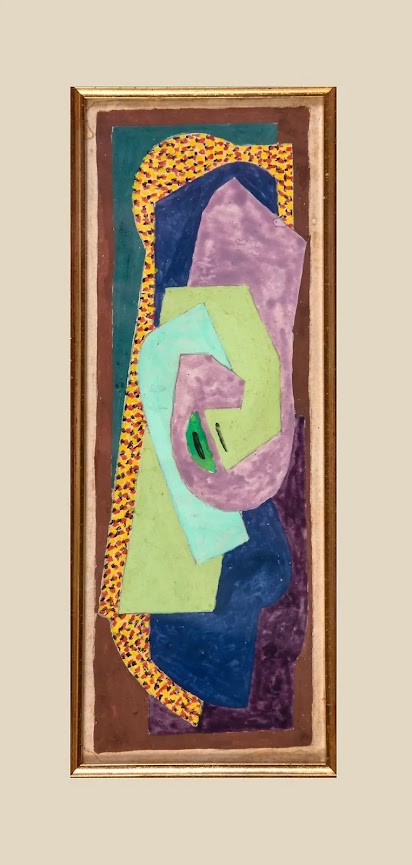
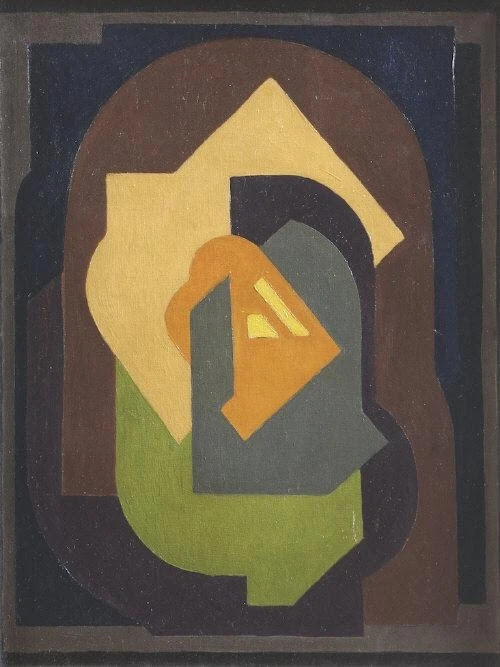


No comments:
Post a Comment
Note: only a member of this blog may post a comment.